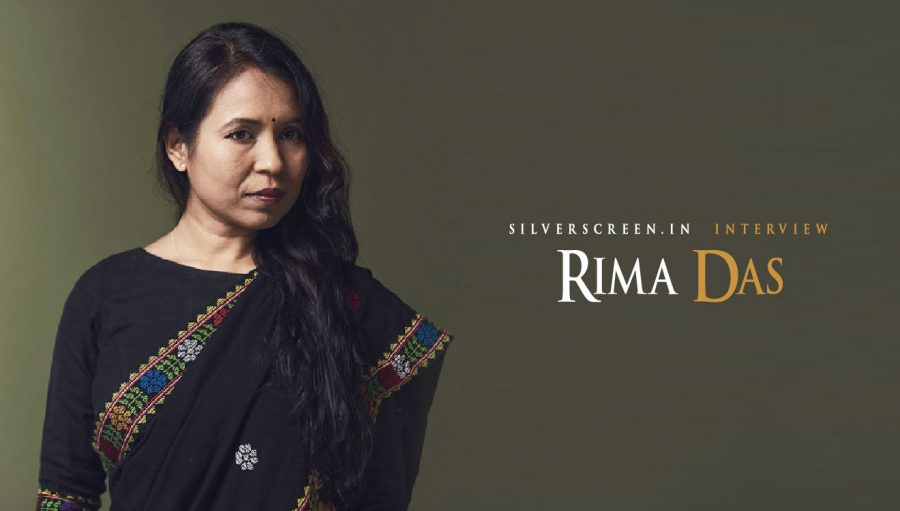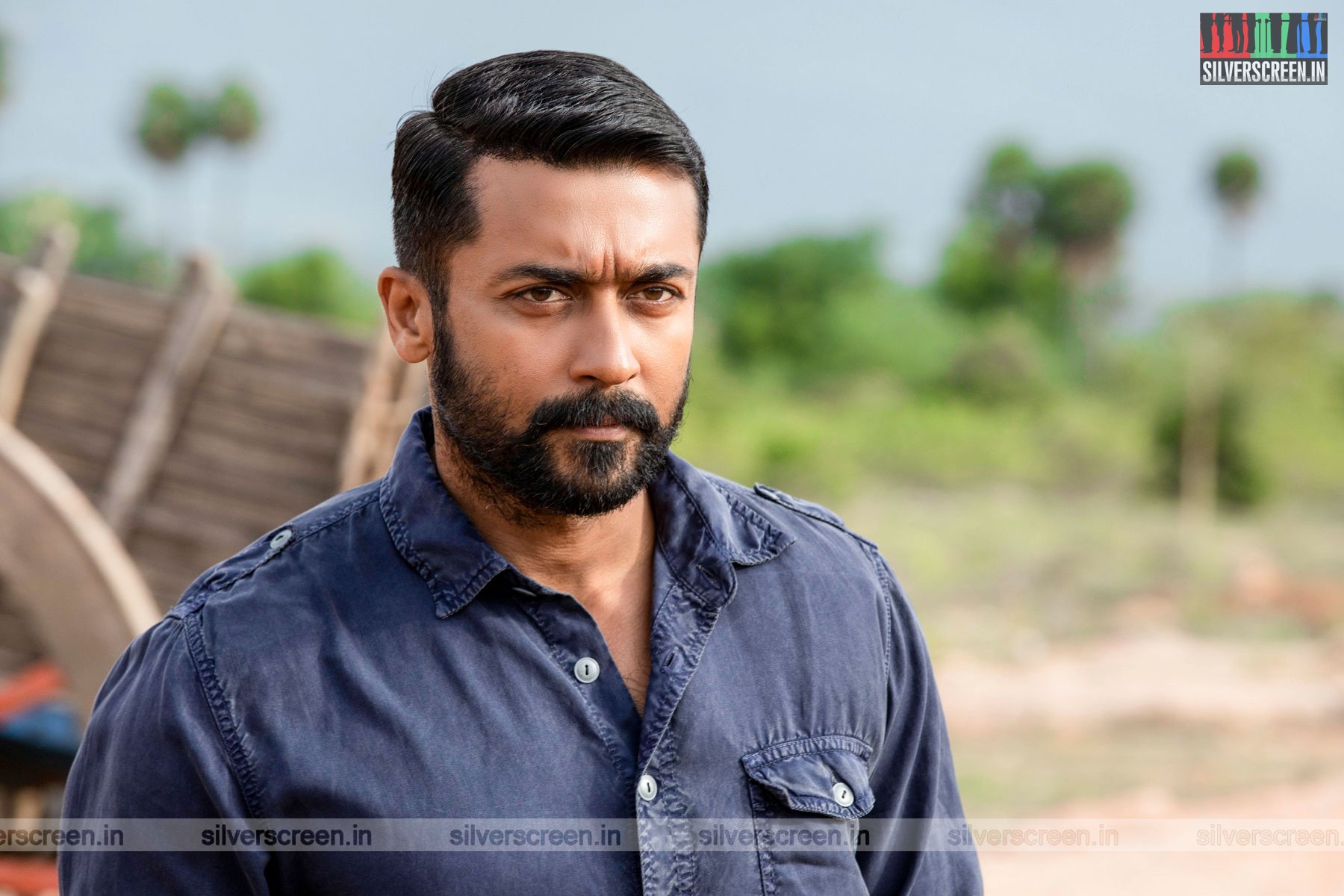In a long telephone conversation with Silverscreen, Assamese filmmaker Rima Das talks about Bulbul Can Sing, her love for stories about young people and female bonding, and being one of the strongest female voices in Indian cinema.
Rima Das recounts a screening of Village Rockstars in London. “After the Q&A session, four little girls came up to me barefoot. They told me they were inspired by Dhunnu (the film’s protagonist) and her friends running around the village without a care in the world. It was touching.”
The 37-year-old filmmaker’s oeuvre has three micro-budget indie films that garnered national and international attention. Her second feature film Village Rockstars (2017), a coming-of-age drama, is centered around 10-year-old Dhunnu (Bhanita Das) who wants to own a guitar and form a band in her village. The breakout art-house indie travelled to nearly 80 film festivals across the world in two years, won close to 30 national and international awards, and became India’s official nomination to the Academy Awards in 2018.
The film’s majestic run was a personal triumph for Das, a self-taught filmmaker from Chaygaon, a village in Assam where all her films are set. Besides directing and co-producing the films, she handles multiple departments including screenwriting, cinematography and editing, with a little help from her younger cousin. Travelling with the films to over 40 international film festivals boosted her confidence as a storyteller. “Apart from giving me visibility, film festivals helped me realise that my films were able to strike a chord with audiences from different parts of the world. People were able to relate to my characters who live in a remote village in North-East India.”
This year, her third feature film, Bulbul Can Sing (2018), another tender coming-of-age tale, won a special mention from the international jury at the Berlin International Film Festival’s Generation 14 Plus category. The film, an informal follow-up to Village Rockstars, is set around a 15-year-old girl, Bulbul (Arnali Das) and her two best friends. The film had its world premiere at the Toronto International Film Festival 2018, and won the Golden Gateway Award in the India Gold category at the 20th Mumbai International Film Festival. It continues to travel to various film festivals. A day before we speak, Das won the Dublin Film Critics Circle Jury Award for Best Director.
Now, in her rented space in Mumbai – a city that she describes as her second home, having arrived there in her early twenties to be an actor – Das is trying to focus on three scripts, and get back to making films. One of them is set in Mumbai.
*****
We talk about the Berlin International Film Festival where Bulbul Can Sing‘s European premiere happened. “It was special,” she says. “The film competed and won a special Jury Mention in an exclusive category for children and young people. They are my muses.”
In Village Rockstars as well as Bulbul Can Sing, the majority of the cast comprises children and teenagers in whose perspective the films unfold. The key to handling non-professional young actors is to understand their psychology, says Das. “I create an environment for them to behave in the presence of the camera without any inhibition. I give them ample time to learn the dialogues. I set them free.”
Das’s films are filling a void in contemporary Indian cinema where not many films are made on childhood and adolescence. “It is important to make films on young people. In the digital age, the gap between the realities of adults and youngsters is dangerously increasing. I think it’s not easy to be young. They face numerous conflicts and harbour ambitions that adults don’t often understand,” says Das, who wants to narrate the stories of young people in an authentic way.
Das’s affair with cinema began only at a later stage in life. As a child, the only time she could watch films in her village was on Saturdays on Doordarshan. “Those sessions were always disrupted by power cuts or heavy downpour,” she laughs. Later, at the college hostel, film watching was strictly prohibited. It was through Bollywood films and world cinema that she got hooked to in her twenties that she fell in love with the medium.
Her films’ forte is the enchantingly unsophisticated language that weaves in human beings, flora and fauna, and the stunning landscape. The characters’ relationship with Nature is treated with the same weight as their relationship with each other. In the masterly-cut opening scene of Bulbul Can Sing, the three teenage protagonists Bulbul, Bonnie and Suman, inseparable close friends, share a delightful private time, under a flowering tree by the side of a river. As they play on a swing tied to a branch of the tree, giggle and tease each other, the camera moves through the space delicately, as though careful to not break the idyll. Two pivotal scenes in Village Rockstars and Bulbul Can Sing take place at dusk, with the river playing a silent witness to the characters’ personal growth. Dhunnu, rowing a boat with her best friend, gently talks about her dead father. Bulbul and Bonnie’s mother quietly mourns a death.
Das, who worked as cinematographer on both Village Rockstars and Bulbul Can Sing, was posed with questions on the latter’s several out-of-focus shots at Mumbai International Film Festival’s Q&A session. “It wasn’t part of the design,” admitted Das to the audience, who wondered if the blurred images meant something they couldn’t grasp. “Those shots were a technical glitch. But I am not too bothered about it,” she says. “Creating the mood is what I really focus on. I am not a formally-trained cinematographer. I shot the film on a Sony camera that I wasn’t very familiar with at that time. Most of the shots were hand-held, and the camera had a small monitor. A large part of the film was shot in the mornings and evenings. In Assam, the ‘magic hour’ doesn’t last very long, so I needed to be quick. I couldn’t really do anything about the out-of-focus shots. Only when I saw the visuals on a big screen did I realise it. But, as a filmmaker, I felt they did not ruin the viewing experience; they took nothing away from the film,” she said.
Although her crew has, so far, largely been female, she says gender isn’t a criterion when it comes to choosing whom to collaborate with. “On the set, I don’t treat people based on their gender. I only look at how sensible they are. I really don’t want to create an environment divided by gender.” It is important for young women to understand that they are capable of making any kind of films, she says. “We need to feel comfortable being women. Trying to ape men is pointless.”
In fact, female protagonists in her films were purely accidental, she says. “Both Village Rockstars and Bulbul Can Sing were conceived as stories of little boys. I restructured the scripts after I came across Bhanita and Arnali. I noticed that they were very talented performers.”
Her films have a casual, yet powerful female gaze, and finely etched out female characters who reach out to each other. Like Bonnie’s mother in Bulbul Can Sing, a widow who eventually comes to terms with the death of her teenage daughter, and becomes Bulbul’s only ally, and Dhunnu’s single mother in The Village Rockstars, an independent woman who wouldn’t let anything in the world stop her daughter from dreaming. “Being a woman has helped the most in this respect,” she says. “I am able to understand my female characters better. While making Village Rockstars, it dawned on me that if I, a woman filmmaker, didn’t narrate women’s stories, who would?”
She feels now must be the right time to make women’s films in India. “The audience we have is global.” She also believes forming a connection with the audience is what really matters. “I don’t want to push my ideology through my films or stick to a formal theory. For me, filmmaking is a truth-seeking activity,” she says.
Perhaps the most interesting character in Bulbul Can Sing is Suman, Bulbul’s best friend who is bullied by the villagers for his gender ambiguity. Debut actor Manoranjan Das won the best performer award at Singapore International Film Festival last year. Das spotted him first while shooting her debut feature film Man With A Binocular. He was then a 10-year-old boy hanging out on the set, ridiculed by the villagers for his effeminate nature.
“Suman is Das himself. He is the only one in the film playing a real life character,” says the filmmaker. “I could sense how uncomfortable he was in his own village. The villagers were unaware of his feelings. They didn’t know the difference between gender and sexuality. The boy himself was conflicted about his gender. There was a lot of complexities in his situation,” she says.
She dropped her initial plan to make a personal documentary on him, realising it would be unfair to him. “He was too young. I didn’t want to push him into a difficult zone. I noticed that he was perfectly comfortable with the girls, and decided to include him as one of Bulbul’s best friends. I spoke to him, and he readily agreed to play Suman”. The film shows him exactly as he is, without labelling him or trying to define him.
It’s a ghost story that Suman narrates in the opening scene that sets the film’s tone. The boy playfully warns Bulbul against leaving her long flowing locks open. “Not very long ago, a girl of our age committed suicide, right under this tree,” he tells her. “Your hair might entice her.” The story foreshadows the tragedy that befalls the teenage friends later in the film.
“It’s a bhoot story I grew up listening to a lot,” says Das. “Indian villages are patriarchal spaces. They have always been hostile towards young lovers, especially girls, who dare to break the moral code of conduct and fall in love. Many of them commit suicide unable to bear social ostracisation and mental harassment from the adults. One time, this happened in a nearby village, and we were warned against wandering into deserted places. Also, this whole attempt to restrict girls from leaving their hair open could be another social tactic of controlling a woman from expressing her sexual desires.”
A crucial scene in Bulbul Can Sing where teenage lovers are attacked by goons is haunting and claustrophobic. “It was a difficult scene to film,” says Das. “We finished that in four days. Since I wanted it to look realistic, I referred to videos of similar incidents of moral policing that happened in various parts of India circulating on WhatsApp, YouTube and elsewhere. I was aghast watching them.”
Recommended
Das strikes a fine balance between loyal insider and curious outsider when recreating her perspective of the rural surroundings she grew up in. She claims to have been a rebellious child who wanted to question elders and break the rules. “It was a phase when I wanted to get out of the place. But now, as an adult, I have a more neutral viewpoint. I understand my elders and their milieu more clearly than I ever did,” she says. “I am two different persons while making a film. I am there, but I also distance myself from the film. I try to include different viewpoints, look for the truth than push myself forward.”
*****
The Rima Das interview is a Silverscreen exclusive.



